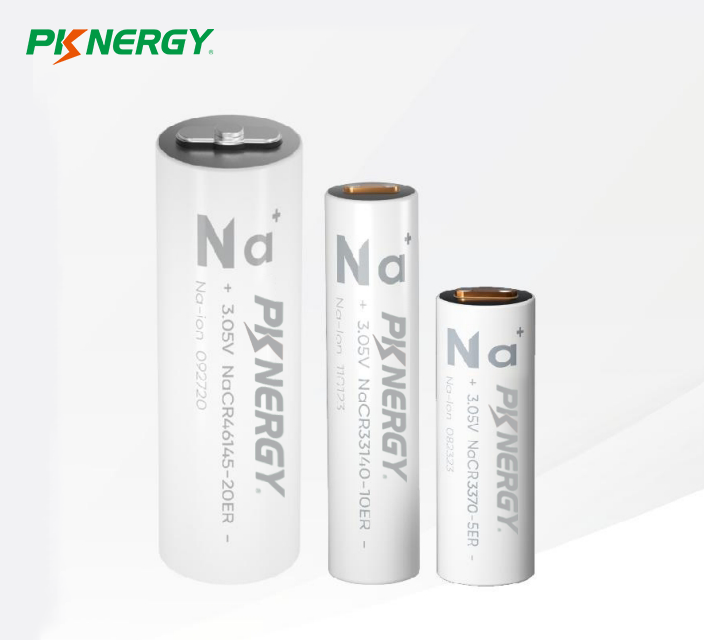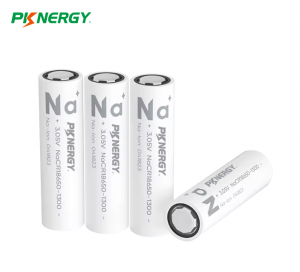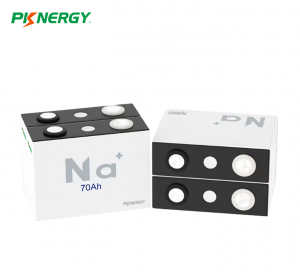Cylindrical Sodium-ion Battery
Pknergy provides cylindrical sodium-ion batteries in various specifications and can design power solutions for various industries through mature assembly technology.
As a rising star in the battery industry, sodium-ion batteries have a longer life than lithium-ion batteries. They perform better in extreme temperatures. They are a good battery option for extreme cold or volcanoes.
Sodium-ion Battery Specifications
| Product Model | NaCR3370-5ER | NaCR33140-10ER | NaCR46145-20ER |
|---|---|---|---|
| Rated Capacity | 5Ah | 10Ah | 20Ah |
| Energy Density | 120Wh/kg | 120Wh/kg | 130Wh/kg |
| Voltage Range | 1.5-4V | 1.5-4V | 1.5-4V |
| Discharge Rate | 8C | 8C | 8C |
| Cycle Life | 3000 (0.5C@70%) | 3000 (0.5C@70%) | 3000 (0.5C@70%) |
| Technical Features | Capacity Type | Capacity Type | Capacity Type |
| Application Field | Lead-acid Replacement, Stop-Start Market, Two-Wheeler Market, Consumer Electronics | Lead-acid Replacement, Stop-Start Market, Two-Wheeler Market, Consumer Electronics | Lead-acid Replacement, Stop-Start Market, Two-Wheeler Market, Consumer Electronics |
Comparison Between Sodium-ion and Lithium-ion Batteries
| Feature | Sodium-ion Battery | Lithium-ion Battery |
|---|---|---|
| Raw Material Availability | Abundant and inexpensive sodium resources | Limited and expensive lithium resources |
| Cost | Lower production cost | Higher production cost |
| Energy Density | Moderate (120-150 Wh/kg) | High (150-250 Wh/kg) |
| Cycle Life | Long (up to 8000 cycles) | Moderate to high (1000-3000 cycles) |
| Safety | High, less prone to thermal runaway | Moderate, requires safety measures |
| Temperature Performance | Excellent low-temperature performance | Good, but performance drops in extreme cold |
| Environmental Impact | Low, environmentally friendly | Moderate, mining and disposal concerns |
| Technical Features | Long cycle life, high safety, cost-effective | High energy density, well-established tech |
| Applications | Renewable energy storage, backup power, EVs, smart home devices | Portable electronics, EVs, energy storage, industrial applications |
Applications
Sodium-ion Batteries: Best suited for renewable energy storage, backup power supplies, electric vehicles (EVs), and smart home devices due to their cost-effectiveness, safety, and long cycle life.
Lithium-ion Batteries: Preferred for portable electronics, high-performance EVs, industrial applications, and other uses where high energy density and compact size are essential.
Both sodium-ion and lithium-ion batteries have their unique strengths and are suitable for different applications. Sodium-ion batteries are emerging as a cost-effective, safe, and environmentally friendly alternative, while lithium-ion batteries continue to dominate in areas requiring high energy density and established technology.
For more information on how our sodium-ion and lithium-ion battery solutions can meet your needs, please contact us. We are here to help you find the perfect energy storage solution for your specific application.




